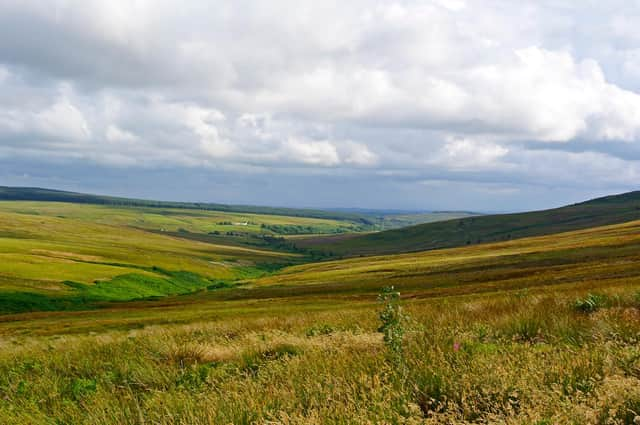Think tank calls for 'national conversation' to rethink future of Scotland's rural land


Reform Scotland said the country was in need of a new “agriculture and land-use road map” after its departure from the European Union and the Common Agricultural Policy.
The organisation has urged politicians and policy makers to explore how to rebalance rural economies and create new jobs to “reverse centuries of urbanisation”.
Advertisement
Hide AdAdvertisement
Hide AdReform Scotland’s discussion paper calls for private landowners to “engage constructively” with a rethink to maximise the potential of rural Scotland through everything from renewable energy, tourism and housing to agriculture and forestry.
The report also recommends a “more balanced and environmentally sustainable" use of natural resources, as well as a rethink of state subsidy and state intervention in rural areas, which account for 98 per cent of Scotland’s land mass, but just 7 per cent of the population.
However, the think-tank has admitted the scale of reforms suggested may “accelerate the decline” of traditional activities such as livestock farming.
It urges the agriculture sector to invest in new technology and science to improve productivity, make the most of biotechnology, genetics and supply of sustainable cheap energy, and enhance forestry and peatland restoration.
The new report has been published weeks after an investigation by The Scotsman revealed how wealthy landowners had been paid millions in EU subsidies since the Brexit referendum.
The report states: “What is clear is that Scotland needs a serious discussion and debate about land use and the choices we might make.
”This is likely to be a difficult and heated exchange, but is necessary nonetheless. It needs all sectors involved, including renewable energy, tourism and housing, as well as the traditional sectors of agriculture, forestry, water, and the environmental.
"It should include local and national organisations and regulatory bodies such as the Scottish Land Commission, SNH (Scottish Natural Heritage), SEPA (Scottish Environment Protection Agency), and national and local planning authorities.
Advertisement
Hide AdAdvertisement
Hide Ad"The private sector, including landowners, must also engage constructively. Given Scotland’s concentrated land ownership and often fragile ecological and economic communities, all major landowners – be they private, public or business – should be required to develop land-use ambition statements, which then would be subject to public and planning scrutiny.
"Decisions should be devolved down to bodies which are best placed to understand the particular regional circumstances, ensuring that there is democratic accountability."
John Glen, chief executive of Buccleuch, one of Scotland’s biggest landowners, who produced the report for Reform Scotland, said: “In Scotland we often discuss who owns the land, but seldom discuss what we actually want to use the land for.
"We must now get serious about how we manage and support rural Scotland to everyone’s benefit.
“There needs to be a wide-ranging national conversation about rural land use and about what works and what doesn’t in the 21st century, including how best to direct taxpayers' money in a way that benefits the environment, population and economy. This will involve some hard decisions, but these can no longer be avoided.
“We are entering a new world as we leave the EU and become masters of our own fate. With one in ten Scottish jobs tied to agriculture, we need to make that new world work for us.”
A message from the Editor:
Thank you for reading this article. We're more reliant on your support than ever as the shift in consumer habits brought about by coronavirus impacts our advertisers.
If you haven't already, please consider supporting our trusted, fact-checked journalism by taking out a digital subscription.
Joy Yates
Editorial Director
Comments
Want to join the conversation? Please or to comment on this article.
